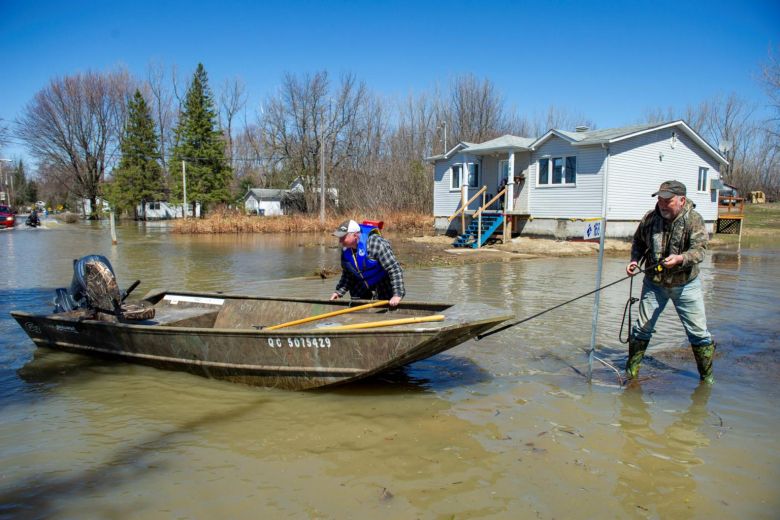Canadian capital Ottawa, Montreal brace for heavy flooding

OTTAWA (Reuters) - Canada’s capital city of Ottawa readied for heavy flooding as rains were set to further engorge the swollen Ottawa River, while Montreal declared a state of emergency as it too braced for an inundation of flood waters.
Ottawa officials told reporters that they now expect waters to rise about half a meter (1.6 feet) above peak levels seen in 2017, when spring flooding caused about C$230 million ($171 million) in insured damage in Ontario and Quebec.
“The situation is changing very quickly on the ground,” said Ottawa city manager Steve Kanellakos, adding waters would affect hundreds of homes, likely more than the roughly 500 hit in 2017. The city declared a state of emergency on Thursday.
Officials in Montreal, meanwhile, declared a state of emergency as Canada’s second largest city also braced for the impact of heavy rains mixed with melting snow on its swollen waterways.
Environment Canada warned that up to 60 mm (2.4 inches) of rain could hit Montreal with the Ottawa-Gatineau region expected to see up to 35 mm (1.4 inches) of rain over the 24-hour period.
Spring flooding has already impacted nearly 5,500 homes in Quebec, with more than 1,000 people evacuated. One woman died when her car was caught in a road washout caused by rising waters.
“This is a broad-spread problem,” Canada’s Safety Minister Ralph Goodale told reporters. “We are working diligently and in close collaboration with all provincial and municipal authorities ... to be as effective as we possibly can be in keeping Canadians safe.”
Light armored vehicles carrying Canadian troops rolled into an already waterlogged community west of the city’s downtown , with soldiers helping residents load sandbags into trucks and boats to shore up their properties.
Across the river in Gatineau, Quebec, a number of roads were closed and dozens of residents were forced from their homes.
Separately, surging waters on the Rouge River in Quebec continued to threaten a hydroelectric dam at Bell Falls, though Hydro Quebec said the structure was still holding.
“If the dam were to give way, people in the area would have less than an hour to get out of the way of that surging water,” said Goodale. “The wise thing would be to get out in advance.”
Provincial and federal authorities said that the severity of the floods in Ontario and Quebec, just two years after the 2017 flooding, could be attributed to climate change.
In the east coast province of New Brunswick, floodwaters were starting to stabilize and even drop, but a forecast for more rain prompted concerns the situation could again worsen.







